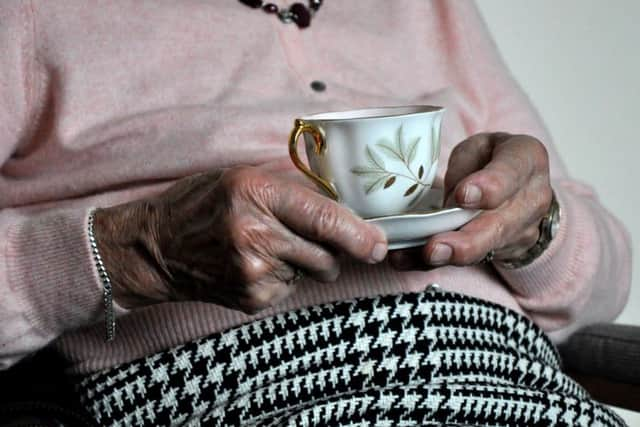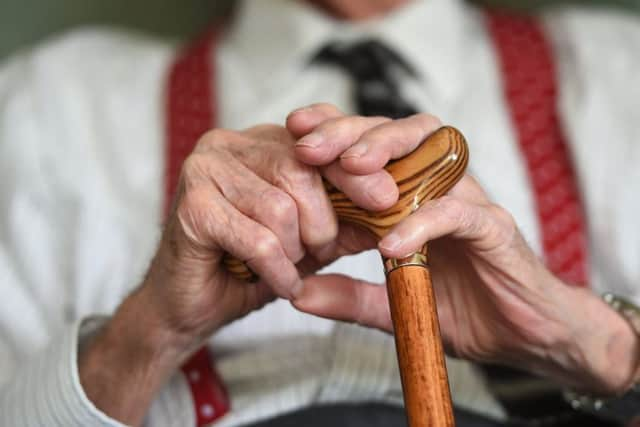This must be the social care general election if elderly to live with dignity – Mike Padgham


Without the support and help they need in their own home to get up, get dressed, prepare a meal and generally look after themselves. Without a place in a care or nursing home where they can be cared for.
Instead, weeks into the election campaign and, as I write this, social care has merited little more than a passing mention. Only vague platitudes about sorting it out, as if it were an annoying, dripping tap. The main parties have been falling over themselves to outbid each other in the billions they want to promise for NHS healthcare. This is, of course, good as the NHS deserves every last long-overdue penny it can get.
Advertisement
Hide AdAdvertisement
Hide AdHere are 1.4 million reasons why social care crisis must now be confronted by next PM - Mike Padgham


But the politicians miss one fundamental point: if you solve the crisis in social care you will massively ease the pressure on NHS care too. Invest extra money to support social care and you will not only bring support to those 1.5m but you will also help NHS hospitals.
Improve homecare and you keep older and vulnerable adults healthier and happier in their own home and out of hospital. Similarly, if you ensure adequate care home places are available, you avoid people having to go into hospital because there is no alternative.
At the same time, if there is sufficient social care available when people are due to leave hospital, you will avoid the situation where people are unnecessarily in an NHS bed and cut down on delayed discharges.
Advertisement
Hide AdAdvertisement
Hide Ad

The Independent Care Group holds its annual conference in York today and I have twice invited the main party leaders to attend. I have yet to receive their RSVPs, so I’m not holding my breath. Cardboard cutouts will take their place.
As the Group’s chair, I invited them to the conference to set out to care providers and a wider audience, how they and their parties intend to end the crisis on social care. Earlier this year I wrote to all 650 MPs urging them to tackle social care. I got little response.
Advertisement
Hide AdAdvertisement
Hide AdThe Independent Care Group has issued its own manifesto – and at the top is a call for the political parties to make firm pledges to tackle social care with a timetable, milestones and a deadline, so that they can’t keep kicking the issue further down the road as they have with the long-promised Green Paper.
Fundamental to ending the crisis is getting more money into the sector. I believe that this should be achieved through taxation or National Insurance. It is fair that the cost falls on everyone and I think people would be prepared to pay a little more in return for a good, sustainable social care service, fit for the future. A fixed percentage of the country’s GDP should be spent on social care.
Social care and NHS care should be merged and a decision finally taken over whether care should be managed locally or nationally, rather than the split responsibility we currently have, with local authorities commissioning social care but central government managing the health service.
We need to ensure that dementia is regarded as a serious health issue, like cancer or heart disease, and people with it treated the same.
Advertisement
Hide AdAdvertisement
Hide AdWe must also work hard to get people working in social care the recognition they deserve. That means a minimum wage for social care workers, above the National Living Wage, and more nurse training and bursaries to encourage recruitment and help end the shortage of nurses in care.
The ICG also wants to see a minimum, agreed level of care fees, social care businesses to be zero-rated for VAT so that they can claim it back, as other business sectors do, and the Care Quality Commission to have much greater powers to oversee all commissioning practices such as per minute billing and 15-minute visits.
Above all, we have to get politicians to guarantee that people receiving publicly-funded care can receive it in their own home or close to where they live so that they remain in their own, familiar, communities.
For far too long, political parties, of all colours, have made promises to fix social care but then failed to do it. From Tony Blair saying children should not grow up in a country where you had to sell your home to pay for care to Boris Johnson pledging when he took office to “fix the crisis in social care once and for all”.
Advertisement
Hide AdAdvertisement
Hide AdAt this election, we cannot – and must not – let them get away with it again as we might not get another chance for a long time. We have to get firm pledges from the politicians on our television screens, and on our doorsteps, that they are going to fix social care. And we must hold them accountable if they fail once again.
Much has been said about getting Brexit done, well this has to be social care’s time too – so let’s get social care done! No more prevarication. No more delays. No more broken promises.
Mike Padgham is chair of the Scarborough-based Independent Care Group and a leading social care campaigner.